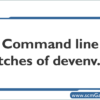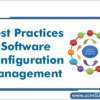
Why and how to use Jetty in mission-critical production
This article is a summary of a seminar I had on the topic. If it seems like it’s a continuation of an existing discussion that’s because, to some extent, it…
Read more »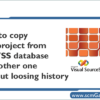
How to copy VSS project from one VSS database to another one without loosing history
If you have any of the following questions in your mind, then this article is the perfect destination for you. How to copy VSS project from one VSS database to…
Read more »
SSARC Utility & SSRESTOR Utility – Archive, Restore VSS Project – Guide
Question: How to Archive VSS Project in Visual Source Safe (VSS)? How to Restore VSS Project in Visual Source Safe (VSS)? What is SSARC Utility? What is SSRESTOR Utility? SSARC…
Read more »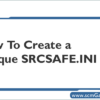
How To Create a Unique SRCSAFE.INI File ?
1. Create a new SRCSAFE.INI file and place it in the desired location. 2. If you want include the default SRCSAFE.INI in the unique copy, add the following line: #INCLUDE…
Read more »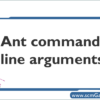
Understand Ant command line arguments with Examples
Several tasks take arguments that will be passed to another process on the command line. To make it easier to specify arguments that contain space characters, nested arg elements can…
Read more »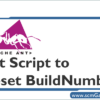
How to use ant Script to Reset BuildNumber?
To use this code, you need to have the file build.number containging: major.number=1 minor.number=0 hotfix.number=0 revision.number=0 continuous.number=0 Then the following 3 targets: <taskdef resource=”net/sf/antcontrib/antlib.xml”/> <taskdef name=”unset” classname=”ise.antelope.tasks.Unset”/> <target name=”initBuildNum” description=”Get…
Read more »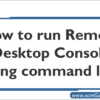
How to run Remote Desktop Console by using command line?
How to run Remote Desktop Console using command line If you may want to run Desktop Console from a batch file, for example RDC over VPN, you can use mstsc…
Read more »
Ant command line arguments – Examples – Summary
Ant command line arguments Several tasks take arguments that will be passed to another process on the command line. To make it easier to specify arguments that contain space characters,…
Read more »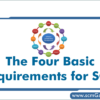
The Four Basic Requirements for SCM Process – SCM Guide
Identification, control, audit, and status accounting are the four basic requirements for a software configuration management system. These requirements must be satisfied regardless of the amount of automation within the SCM process. All four may be satisfied by an SCM tool, a tool set, or a combination of automated and manual procedures.
- Identification—Each software part is labeled so that it can be identified. Furthermore, there will be different versions of the software parts as they evolve over time, so a version or revision number will be associated with the part. The key is to be able to identify any and all artifacts that compose a released configuration item. Think of this as a bill of materials for all the components in your automobile. When the manufacturer realizes that there has been a problem with parking brakes purchased from a subcontractor, it needs to know all the automobile models using that version of the parking brake. It is the same with software. If we are building a multimedia system that has audio MPEG3 drivers for Windows 98, Windows 2000, Windows CE, Linux, and FreeBSD operating systems, how do we find out which releases are impacted when we find an error in the Linux product? You must go back to your SCM system to identify all the common components in all operating system releases that are impacted.
Read more »
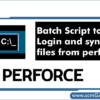
Batch Script to Login and sync the files from perforce | Step by step guide
Batch Script to Login Perforce server using command line Step 1: Create a new text file Step2: Copy following command %path% @echo on p4 -p172.28.16.2:1666 -uUserName -P”Password” -c”Client_Name” client –o…
Read more »
 Starting: 1st of Every Month
Starting: 1st of Every Month  +91 8409492687
+91 8409492687  Contact@DevOpsSchool.com
Contact@DevOpsSchool.com
